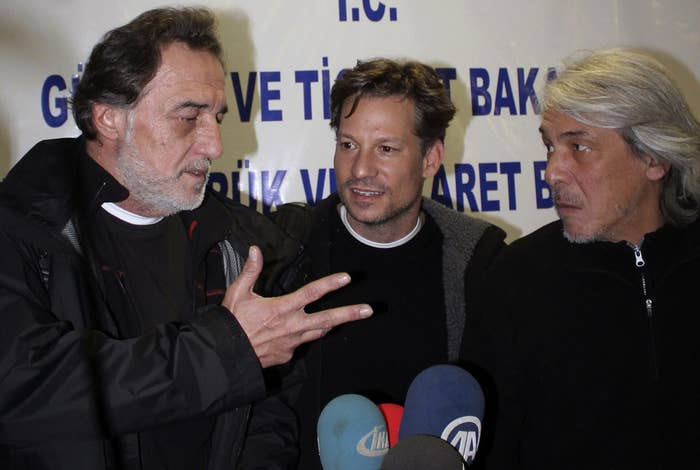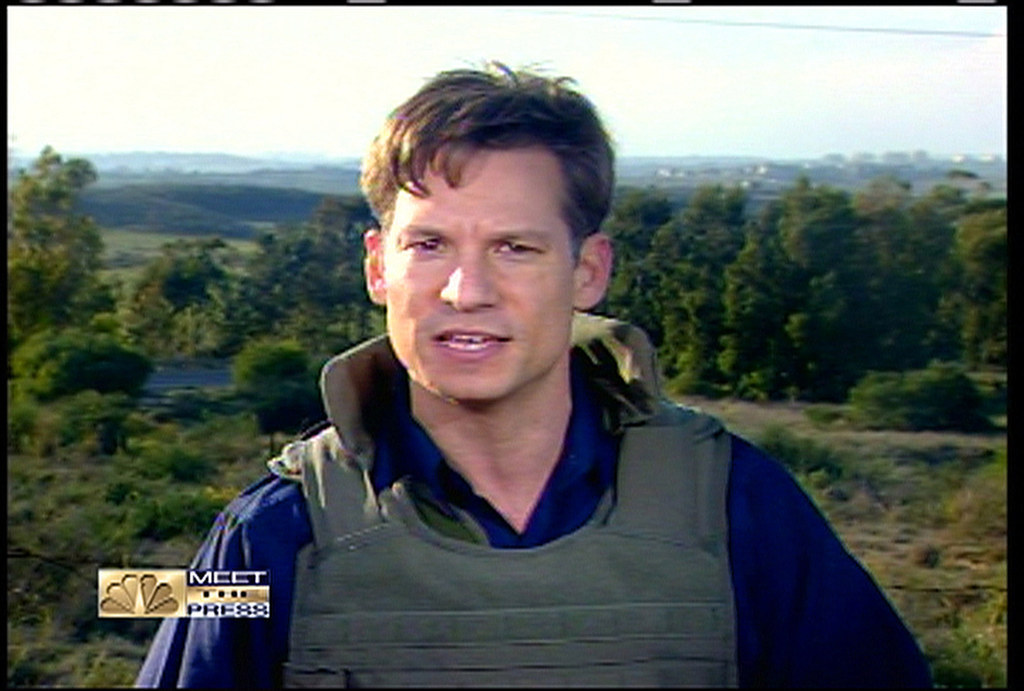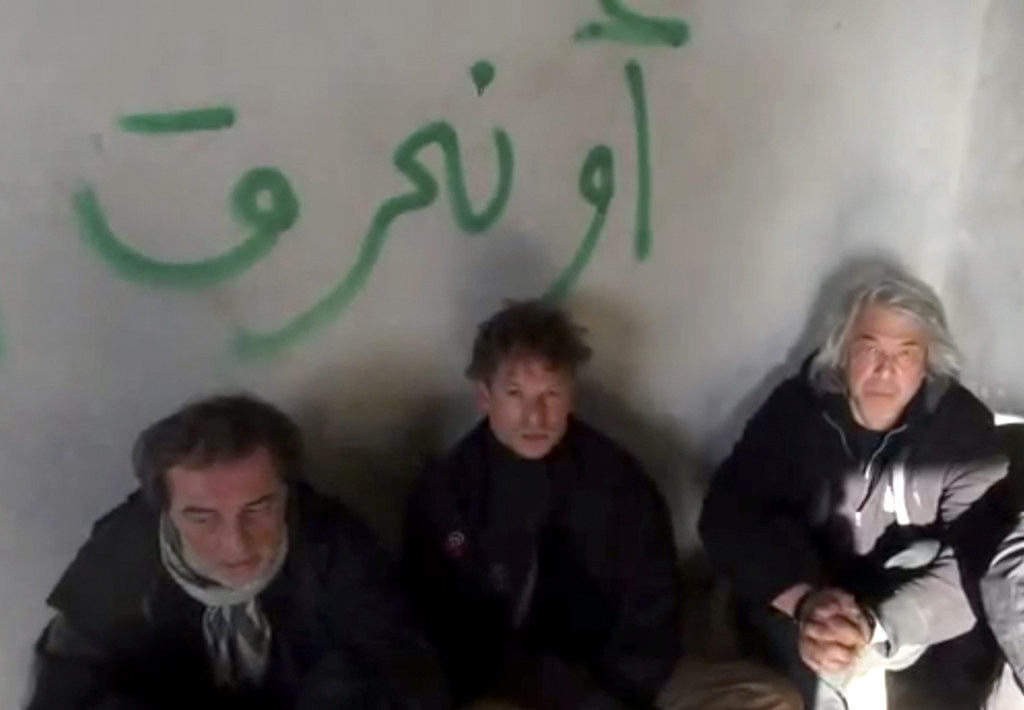
NBC News on Wednesday amended chief foreign correspondent Richard Engel's account of his 2012 kidnapping in Syria, saying he and his team were likely abducted by a Sunni militant group. Engel had originally reported that the team was captured by forces affiliated with President Bashar al-Assad.
In a statement posted to the NBC News website, Engel wrote that "the group that kidnapped us was Sunni, not Shia" and that they "put on an elaborate ruse to convince us they were Shiite Shabiha militiamen."
Engel also said they were prompted to review the incident after reporting was done by the New York Times that found contradictory information, including that the captors and those who released them likely had a relationship.

The kidnapping lasted five days and Engel said he and his team were blindfolded as they were moved between points. On the fifth night, kidnappers drove the team to a rebel checkpoint, where they heard gunfire. After the shooting stopped the team took off their blindfolds and the rebels said they had killed the kidnappers.
After they were released, the team appeared on the Today show. Engel recounted the kidnapping story, saying, "This was a group known as the shabiha, this was the government militia, these are people who are loyal to President Bashar al-Assad."
Engel was also interviewed by Vanity Fair shortly after the incident and said NBC Turkey reporter Aziz Akyavas saw one of his captors was lying dead beside a vehicle, after the round of gunfire stopped.

The New York Times, however, uncovered information that revealed the kidnappers were likely Sunni affiliated with the Free Syrian Army, which includes rebels who oppose Assad. They also found that the kidnappers probably had a relationship with the rebels who released them.
The New York Times wrote:
"Several rebels and others with detailed knowledge of the episode said that the safe release of NBC's team was staged after consultation with rebel leaders when it became clear that holding them might imperil the rebel efforts to court Western support."

The captors searched the belongings Engel and his team had with them shortly after they were abducted and "unwittingly set off an emergency GPS beacon we carried with us," he wrote Wednesday.
NBC News detected the signal, traced the team's location to a farm, and passed that information to sources throughout the Middle East.
"Word spread quickly and, we now know, soon reached the kidnappers themselves," Engel wrote.
The kidnappers reportedly became nervous and feared killing Engel's team because their location had already been revealed. Supervisors of the captors were hoping to persuade the U.S. government to provide arms and did not want to risk hurting Americans.
"Some now claim that the gunfire was staged to convince us — the hostages in the van — that we were rescued, rather than just handed over," Engel wrote.
He also admits in the statement that he did not see the dead body mentioned to Vanity Fair, but another member of his team reported stepping over it after the gunfire.

The New York Times reported that NBC executives knew two men — Azzo Qassab and Shukri Ajouj — were involved with both the kidnappers and the rebels who released Engel. However, NBC still pushed Engel on air afterwards with an account accusing Shiite captors of the abduction.
The changes to Engel's story come just two months after NBC News suspended nightly news anchor Brian Williams. Williams' suspension was imposed after he it was revealed he had, in his words, "misremembered" the story of a helicopter attack in Iraq in 2003. In the original version of the story, Williams said he had been shot down, but military personnel at the scene later said the anchor was actually in a different aircraft.
Richard Engel wrote in a 2013 Vanity Fair piece that his fellow journalist, Aziz Akyavas, saw the dead body of one of his captors. This article previously said that Engel wrote in Vanity Fair that he saw the dead body.
